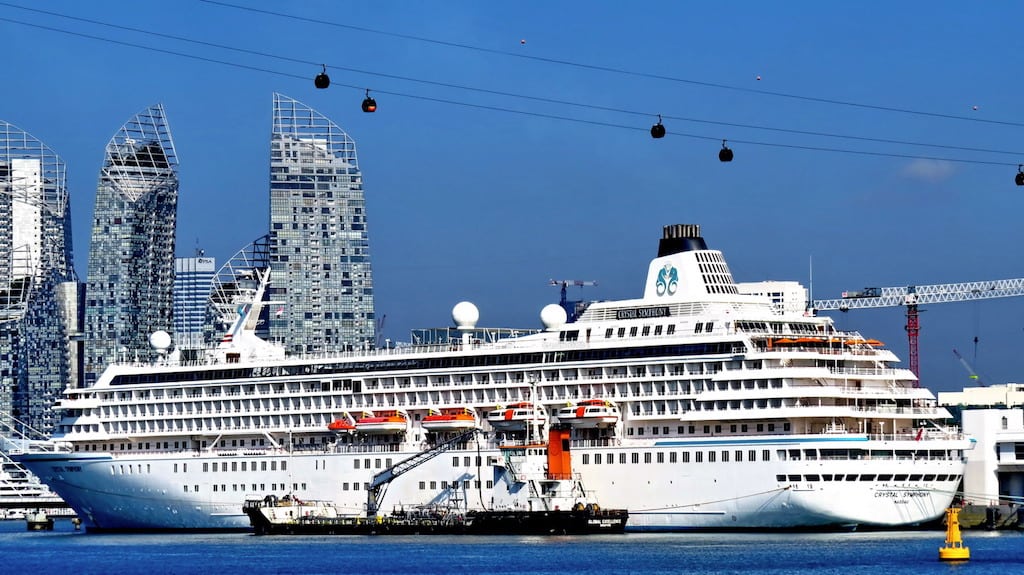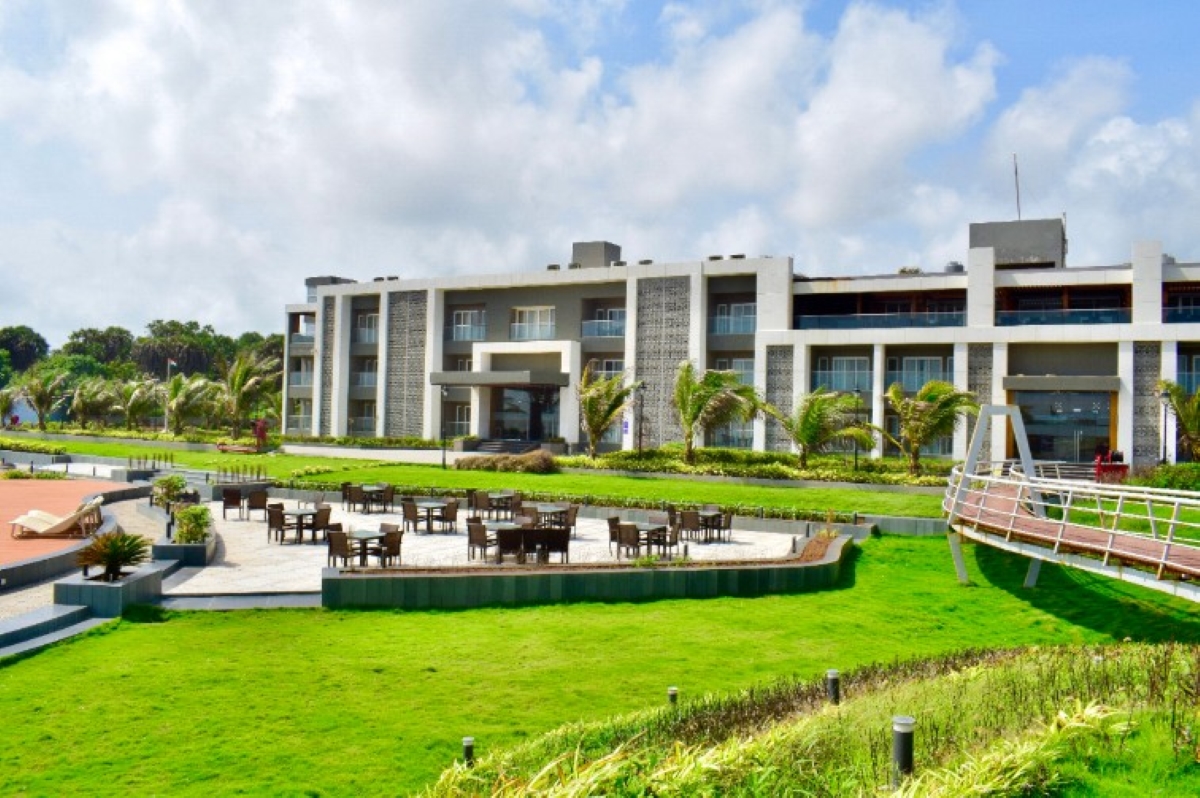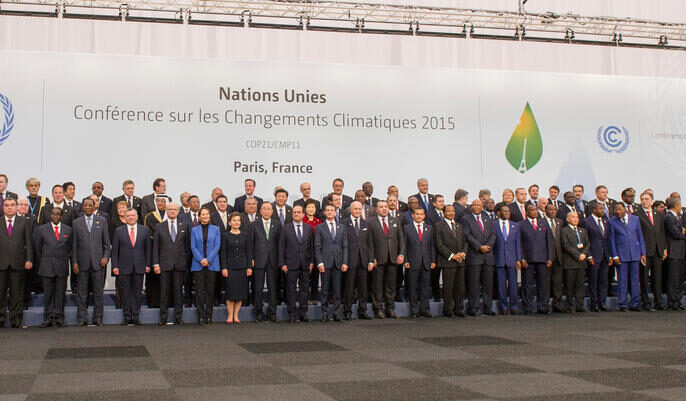CEO Interview: How Cruising Has Prepared for Its Push Into Asia

Skift Take
It's been a quiet couple of years for the cruise industry when it comes to safety and security incidents, which has freed up the industry's trade group to gear up for a global pivot instead of focusing on public relations triage.
Cruise Lines International Association (CLIA) president and CEO Cindy D'Aoust, who originally joined the organization in 2014 and was recently promoted this year, has worked to solidify the global coalition of cruise groups that CLIA has been working to unite since 2013.
At a time when major cruise lines themselves have been focused on promoting new ships and breaking into new markets like China, CLIA has quietly been working to create a global framework for cooperation across the industry.
Skift spoke to D'Aoust in Vancouver about CLIA's policy role in Washington, the challenges of uniting the stakeholders in a giant global industry, and why all eyes in cruising are on Asia.
Skift: CLIA moved its operations from South Florida to Washington, D.C., a few years ago. My view was that this represented a bit of a shift towards handling more policy and regulatory issues instead of travel agent issues. How has that change developed?
D'Aoust: That's really a very good question. When I first came on we were at such a pivotal time in our history and we were moving our operations to DC. That was the major shift for us and required a lot of changes we had, new infrastructure, new systems, we invested in a lot of global thing to help us really live into that global footprint. A lot of work goes into that. It's not something you manage over night. We brought on new leaders to help us around the world as we lift into that. Certainly that was one thing. For me, learning all that CLIA has to offer. I have a lot of background in the trade/commercial side.
To get really clear on the value that we deliver to members on the very, very serious side. Safety, security. Those types of things. All the work that we do protecting the environment. That was a huge learning curve. Then making sure that around the world that the framework that we built, that we put together a global framework so we can share around the world and our members can access content and things like that around the world. But that we have a framework that allows our locals to execute at their level.
That's one of the things I'm most proud of. I'd say my learning curve and bringing all the operations and all the team together in a structured operational structure and then having the three pillars that together we really defined as enhancing our member value, having the local framework and then unifying the industry. That is the other big thing, you've probably heard me talk a few times about working with sister associations, others in the industry to bring that industry together instead of fragmenting the industry.
Skift: What's it like aligning the priorities and goals of more than a dozen different cruise trade groups across the world?
D'Aoust: Fifteen different associations. Every association had its own board, had an executive group. It was a very, very, very, complex [group of] organizations. They have different methodologies for dues and things like that.
Over the last three years the work has been getting everyone to a place where we have standards, policy, agreement, alignment. Again, still enough flexibility and empowerment at the local level. I will say the big investment this year for all of us has been the amount of time that we've been on the road both ways. All around the world.
I think we're trying to take the same key that our cruise line executives are and that is it's got to be about personalization, it's got to be about what's important to the members for that particular group. There's some really good leaders in our organization that are working on that.
Skift: The cruise industry seems to be doing well in 2016. It seems like demand is keeping up with the number of new ships flooding the market.
D'Aoust: So much great success. 2015 exceeded what we had projected. We see continued growth. If you look at the new builds, we're going to have 27 new ships coming out. It's not just 27 new ocean. We've got 18 that are the river and 9 that are ocean. Different sizes, different classes of ships, so many more options. People are excited, the economy is good, there's a lot of things that are driving that. Everything that we see, we've got new destinations, Asia's really growing, Australia, all the markets are very, very popular. The Caribbean is staying strong.
Still, we have so much opportunity. [Cruising is still just] two percent of the total leisure market. We've got great opportunity.
Skift: Speaking of Asia, most of the major North American cruise lines are deep into their pivot to serve the Chinese vacationer. What are the challenges cruising faces in China?
D'Aoust: I think when you look at opportunities they are huge and you've heard some people say that in 10 years they will be as large as all of North America. We'll have to watch that and see. When you look at China, not only are they our future sourcing market, which we'll talk about the obstacle to get there. There are opportunities to be a future sourcing market and a market that's sourced. Then you've got people that are building ships specifically to stay in that region.
It's really got every dimension possible. Now the challenges are, you've got to develop a sourcing community. It's a very different culture. Working with the government to establish the right model to grow travel agents and to deliver education and things like that. Making sure that the model fits in that market. It's not going to be the same as it is in the United States and even in Europe. That's okay. Europe isn't the same as the United States, either.
The other challenge is you get that huge growth is making sure you have the infrastructure. You need to have not only enough ports of call but the infrastructure at the ports to do all the turnarounds and to accommodate the number, not only of people, but of ship calls. With growth, like everywhere, you need to make sure that the market is ready for it. When you go into a destination if that community isn't ready to receive all of those visitors you'll end up with people that come one time.
So it's educating, making sure the infrastructure is ready, it's all those things. I will say that's what the cruise lines do far before they really start activating in a region, they're working on those things years ahead. You're working on a ship 10 years before it comes to the water. They're working on the markets far before they start operating them.
Skift: A big focus this year from cruise lines has been improvements and refinements to the land-based facets of the cruise vacation. Is this of particular importance in the Caribbean, where the same destinations keep getting visited each year?
D'Aoust: [It's important] anywhere. If you look at the Caribbean, it's been the home for cruising for years and years and years. Still you need to work with the different markets to make sure the taxi drivers, the store operators, all the people know the value the cruising brings to their particular market and they're excited about and they're there to make it a good experience.
Even when you step off the ship and you're in port, that's still a reflection of your total experience. We need to work with all of our partners pre and post. All of those things are part of the responsibility that we have.




